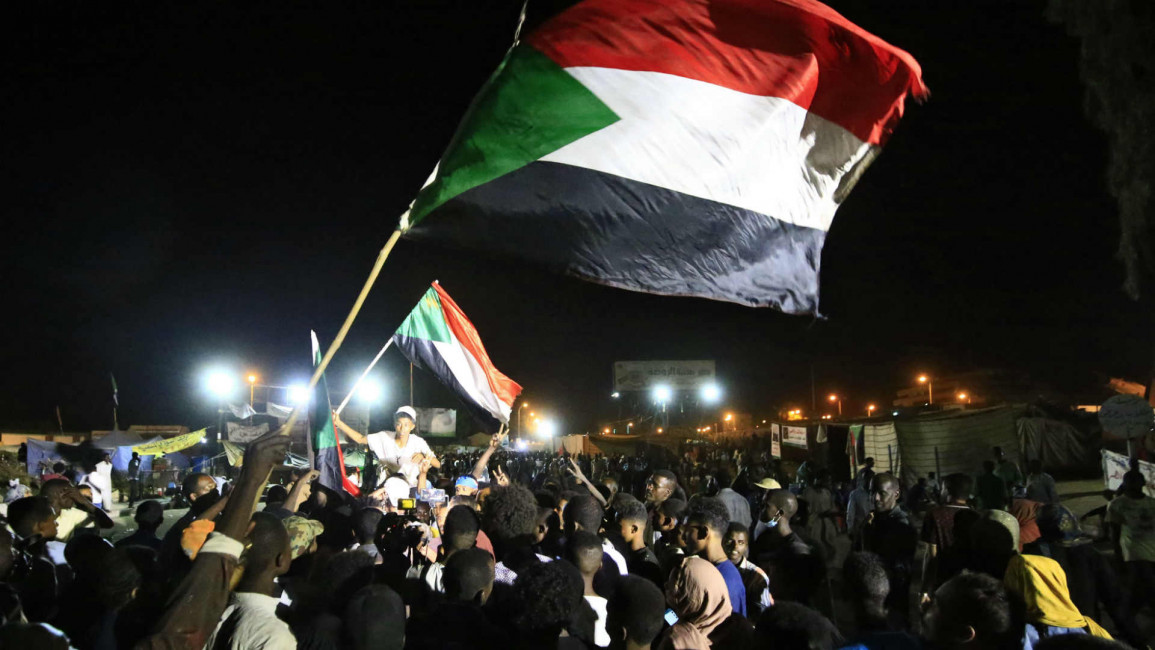Web 'blackout' sweeps protest-hit Sudan
"It's the first time Sudatel has cut off everything in the country," a spokesman for Netblocks said.
"It was not switching off data centres, more like a digital cutting of all lines," he said.
The military council announced that security forces on the streets would be boosted after four people were killed in clashes on Sunday - two in Khartoum and two in Omdurman, just across the Nile river.
Protesters had set up roadblocks across many areas of the capital that the ruling generals have vowed to remove in order to bring "life to normal".
Several shops, fuel stations and some branches of private banks were open in Khartoum as the civil disobedience campaign moved into a second day, an AFP correspondent who toured the capital said.
Public buses were also ferrying passengers, while more vehicles and people were seen than the previous day.
But most parts of the capital remained closed as shopkeepers, traders and employees opted to remain indoors.
Those who ventured out said they had to earn their livelihood.
"If I work it does not mean that I don't support the revolution," said bus driver Abdulmajid Mohamed.
"I have to work to support my family or else we will have no money."
The generals have blamed protesters for a deterioration in security in Khartoum and across the country.
The protest umbrella "is fully responsible for... blocking roads which is violating international humanitarian laws," Lieutenant General Jamaleddine Omar said on state television late Sunday.
"The Military Council has decided to reinforce the presence of armed forces, RSF and other regular forces to help normal life return," the council member said.
The RSF has been blamed by witnesses for the killings last week during the clearing of the weeks-long sit-in.
The general said security forces would provide "security to isolated civilians, reopen roads and facilitate the mobility of people, public and private transport and protect markets and strategic state installations".
'Lose our country'
Some residents called for the generals and protester leaders to narrow their differences.
"The two have to find common ground because if the situation continues like this, I'm worried we will lose our country," said Issa Omar, an employee at a workshop in Khartoum.
The death toll since the crackdown began on June 3 has reached 118, according to a doctors committee linked to the protesters who are pressing the military to hand over power to a civilian administration.
The health ministry, for its part, says 61 people died nationwide in last week's crackdown, 49 of them from "live ammunition" in Khartoum.
The Central Committee for Sudanese Doctors blamed forces supporting the ruling generals for the deaths on Sunday.
The Sudanese Professionals Association, which first launched protests against Bashir in December, has said the disobedience campaign would continue until power is transferred to a civilian government.



